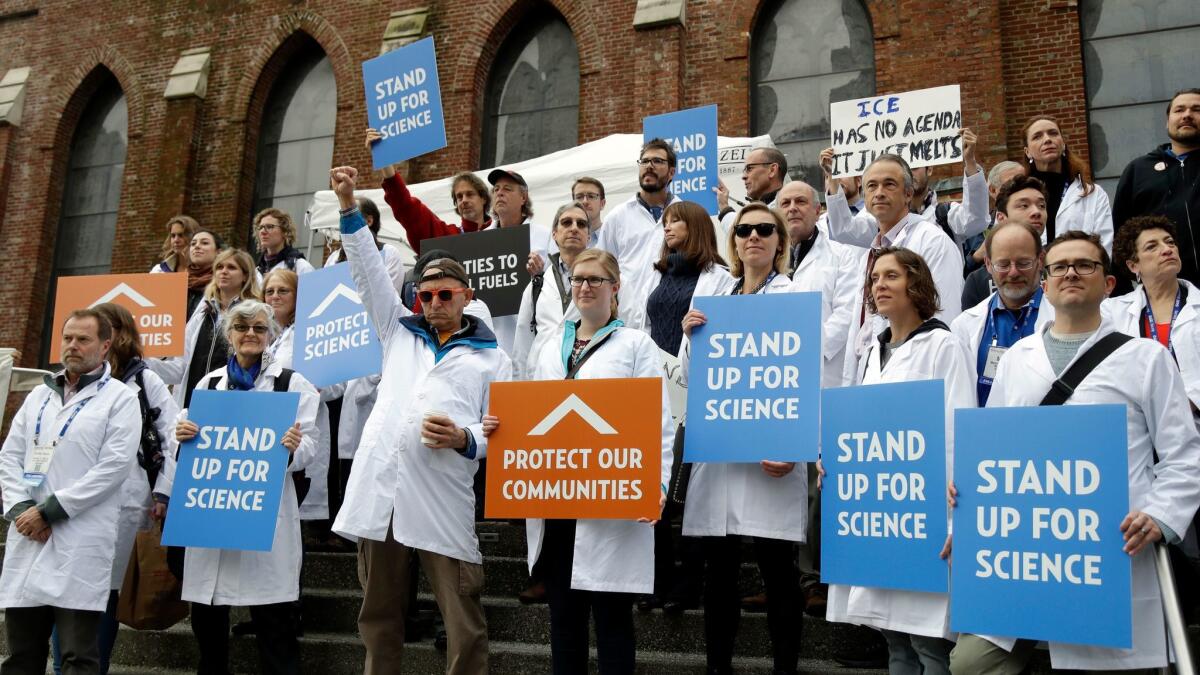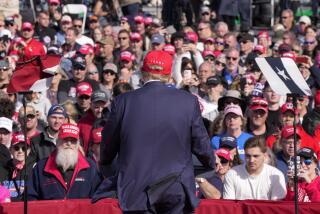Opinion: Political disagreements are about values, not facts

To the editor: Eric Schwitzbel argues that democracy requires a balanced press (and academia), but when one party or the other consistently makes false statements and takes misleading positions it becomes difficult for the media to present a balanced view. But when the media favor one party or the other, the disfavored party is likely to seek retribution or censorship, and that is fatal for democracy. (“What happens to democracy when the experts can’t be both factual and balanced?” Opinion, Jan. 27)
The flaw in this argument is that most political questions aren’t strictly factual ones. The question about securing our southern border doesn’t revolve around how many people cross the boarder illegally, but how restrictive immigration policies should be — a value judgment.
Is there is too much government regulation? One side says yes because it restricts individual and commercial freedom, while the other side says no because some freedoms must be restricted to create socially beneficial behavior. Striking the right balance is a value judgment, not a question of fact.
“Saving” democracy doesn’t require asking journalists (or academics) to pretend there’s balance in the face of factual error, but to make sure that there is diversity of opinion so that the balance will occur naturally. It is a liberal conceit to assert that the “facts” are only on their side when in reality the argument is about values.
Fred Evans, Simi Valley
Follow the Opinion section on Twitter @latimesopinion and Facebook
More to Read
A cure for the common opinion
Get thought-provoking perspectives with our weekly newsletter.
You may occasionally receive promotional content from the Los Angeles Times.






